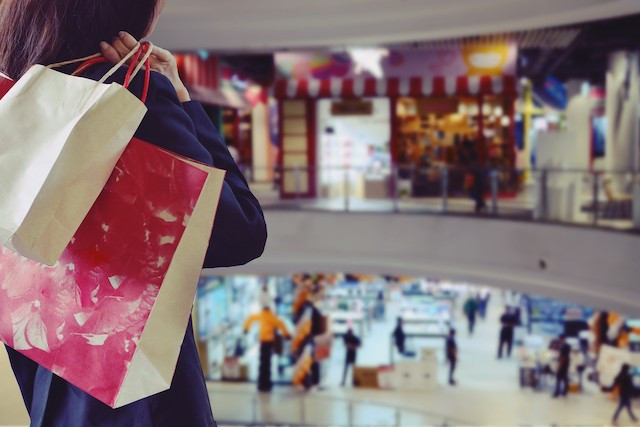In their latest report, the task force responsible for delivering its expertise to health services and the government refers to the high number of new daily cases, stating that "the last implemented measures seem to not have a strong effect so far and do not lead to a further relaxation of the epidemic dynamics."
Cafés and restaurants have closed, cultural venues--except museums--are at a standstill, limited sports are being practiced, and social gatherings are restricted: all of this seems to have been ineffective in bringing the number of infections down, although cases are stable, giving no sign that it will get better in the days and weeks to come.
Impact of shopping
So what is the culprit? For the task force, shops have seen very high traffic in recent weeks with the approaching holidays. Crowds were present again on Saturday at shopping centres and in the capital.
According to an employee of a major brand located in the Grand Rue in the capital, "there is something really wrong. They say that in stores people wear the mask, which is not the case in the hospitality sector. But what mask? Some wear it badly, others have masks in a poor condition, [which] are no longer very effective ... Who really changes them every four hours? Even I, an employee, don't think about it. What I see is that customers are pushing each other...resistant to accepting restrictions, they touch everything, push each other ... The products we sell, we no longer have the time to disinfect them.”
The task force is encouraging people to review interactions. "Social behaviour can change the curve [of infections] in one direction [or another]." For experts, faced with a very volatile pandemic, the fear is that the infection threshold will remain high--and possibly even rise again. And that could quickly cause the health system to be overwhelmed.
"Mitigation of the epidemic wave relies on further social efforts in reducing physical interactions, respecting hygiene measures and active participation in large-scale testing to prevent bottlenecks in the healthcare system and contact tracing capacity," the report continues.
Doctor Romain Nati sounds the alarm
At the same time, Doctor Romain Nati, director general of the Center hospitalier de Luxembourg (CHL), expressed his concerns on Facebook. "With a death rate of around 1%, five of the 506 people who tested positive yesterday are not going to survive the next few weeks," he posted on Friday. That would mean “five families do not yet know that they will begin 2021 in mourning.”
He concluded by asking the question if this was the way Luxembourg should continue.
In Germany--where Zeit Online reported three days ago that every three minutes one person is dying from covid-19--new restrictions were decided over the weekend.
There too, as in Luxembourg, a soft lockdown had been put in place, with the closure of cafés and restaurants. But, faced with a pandemic that is not slowing down, Chancellor Angela Merkel announced the closure of non-essential businesses, schools and crèches from Wednesday and at least until 10 January. Teleworking will also be applied where possible, again.
Luxembourg's parliament on Tuesday is set to vote to extend the measures currently in place until 15 January, meaning that homes will only be able to welcome two visitors from the same household over the holidays.
This article was originally published in French on Paperjam.lu and has been translated and edited for Delano.
